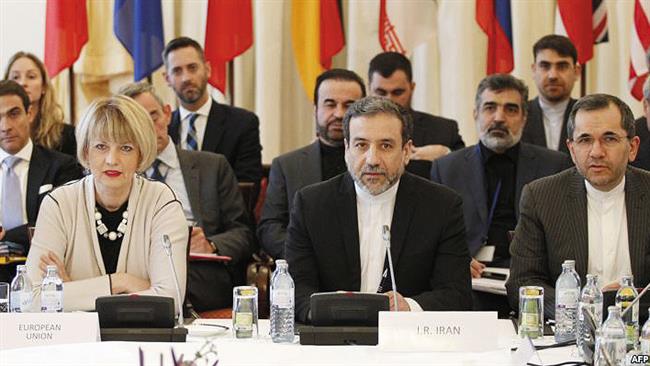
RNA - The monitoring body will convene for a sixth meeting on Tuesday, with deputies and political directors from Iran and the P5+1 – Russia, China, France, Britain, the US and Germany -- as well as European Union Political Director Helga Schmid in attendance.
It held its first edition in October 2015, months after the two sides inked the landmark nuclear deal, known as the Joint Comprehensive Plan of Action (JCPOA).
The JCPOA, which took effect in January 2016, removed nuclear-related sanctions against Iran in exchange for the Islamic Republic placing certain limits on its nuclear program.
Prior to the Tuesday meeting, Iranian experts met their counterparts from other delegations, including the Americans.
A taskforce, which has been set up to monitor sanctions relief, meanwhile, met on Monday, and is to report to the commission as it meets.
This time, the commission is convening at Iran’s request to address Washington’s decision to extend an anti-Iran sanctions law, a move Tehran has slammed as a violation of the nuclear deal.
Last December, the US Congress voted to extend Iran Sanctions Act (ISA) for another 10 years. The law, which authorizes the US president to re-impose the bans, was first adopted in 1996 to punish investments in the Islamic Republic over its nuclear program and its support for anti-Israeli resistance groups.
Outgoing US President Barack Obama later declined to sign the bill, but White House Press Secretary Josh Earnest said he had decided to allow the legislation to become law without his signature.
The ISA’s extension came despite numerous reports by the International Atomic Energy Agency (IAEA) confirming Iran’s commitment to the JCPOA.
In a retaliatory measure, Iranian President Hassan Rouhani instructed Foreign Minister Zarif on December 13, 2016, to take action to follow up on the US violations of the JCPOA as per the provisions of the deal and to take other legal and international measures necessary in that regard.
He also ordered the Atomic Energy Organization of Iran to plan work on nuclear propulsion devices to be used in sea transport.
Based on Rouhani’s directive, Zarif later sent a letter to the European Union foreign policy chief, Federica Mogherini, calling for a meeting of the joint commission to discuss the recent US move.
847/940